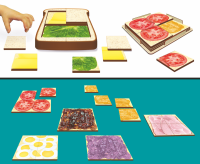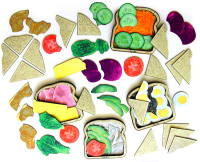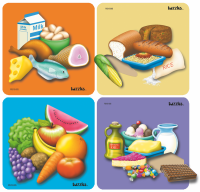Special Needs
- Fine motor skills development: Jigsaw puzzles can help enhance hand-eye coordination and dexterity through the manipulation of small puzzle pieces.
- Visual-motor integration improvement: By matching puzzle pieces to their corresponding locations, individuals can improve their ability to coordinate visual information with physical movements.
- Attention to detail training: Successfully completing a jigsaw puzzle requires careful examination and matching of individual pieces, helping to increase attention to detail.
- Problem-solving skill building: Jigsaw puzzles present a challenging but enjoyable way to develop problem-solving abilities, as the puzzle-solver must find and fit together the correct pieces.
- Montessori education: In a Montessori setting, jigsaw puzzles may be utilized as a manipulative for teaching shape recognition, size discrimination, and spatial relationships.
- Physiotherapy: Working on a jigsaw puzzle can also help improve proprioception, which is the awareness of the position and movement of the body, through the manipulation of the puzzle pieces. This can be helpful in physiotherapy settings as it can help improve balance and coordination.
Showing all 7 results
-

Wood puzzles Shapes Inside Objects
$24.95 inclusive of GST -

Vegetables
$31.76 inclusive of GST -

Food Plate Dinner
$30.87 inclusive of GST -

Meal Time peg
$29.95 inclusive of GST -

Toddler Sandwich – 3 Layer Puzzle
$88.31 inclusive of GST -
Sale!

Sandwich Puzzles
$54.95 inclusive of GST -

Good Food Set
$59.95 inclusive of GST
